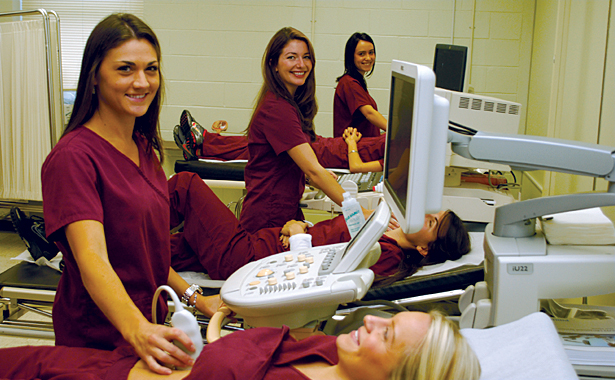Introduction
Embarking on a career as an ultrasound technician is a journey into the fascinating world of medical imaging, where individuals play a crucial role in diagnosing and monitoring health conditions. This article explores the significance of ultrasound tech schools, detailing the education and training they provide, the skills students acquire, and the potential career paths available in the field.
Foundations of Ultrasound Tech Schools
Ultrasound tech schools serve as educational institutions specializing in training individuals to become proficient ultrasound technicians or technologists. These schools offer comprehensive programs designed to equip students with the knowledge, skills, and hands-on experience necessary to perform diagnostic medical sonography.
Curriculum and Coursework
The curriculum in ultrasound tech schools encompasses a range of subjects to ensure a well-rounded education. Core coursework typically includes anatomy, physiology, medical terminology, and patient care. Additionally, students delve into specialized areas such as obstetric and gynecologic sonography, abdominal sonography, vascular sonography, and echocardiography.
Hands-On Training and Clinical Experience
One of the defining features of ultrasound tech schools is the emphasis on hands-on training. Students have the opportunity to apply theoretical knowledge in real-world settings through clinical internships. These experiences take place in hospitals, clinics, or imaging centers, providing students with valuable exposure to diverse patient cases and equipment.
Use of Advanced Ultrasound Technology
Ultrasound tech schools ensure that students are well-versed in operating state-of-the-art ultrasound equipment. Mastery of advanced technology is essential for accurate and detailed imaging. Students learn to use ultrasound machines effectively, interpret results, and communicate findings to healthcare professionals.
Development of Critical Thinking and Problem-Solving Skills
In addition to technical proficiency, ultrasound tech schools focus on developing critical thinking and problem-solving skills. Students learn to analyze images, identify abnormalities, and make informed decisions to aid in the diagnostic process. This skill set is crucial for providing accurate and timely information to healthcare providers.
Certification and Licensing Requirements
Completion of an accredited ultrasound tech program is often a prerequisite for certification. While certification requirements may vary by location, many suckmygeek.com/ align their programs with national certification exams. Achieving certification enhances the credibility of ultrasound technicians and opens doors to a wider range of employment opportunities.
Career Paths and Specializations
Graduates of ultrasound tech schools can explore diverse career paths and specializations within medical imaging. Whether focusing on obstetrics, cardiology, or vascular imaging, ultrasound technicians have the flexibility to specialize in areas that align with their interests and career goals. This versatility contributes to the dynamic nature of the profession.
Continuous Learning and Professional Development
The field of medical imaging is constantly evolving with advancements in technology and healthcare practices. Ultrasound tech schools instill a commitment to continuous learning and professional development. Technicians are encouraged to stay abreast of industry updates, attend workshops, and pursue additional certifications to enhance their skills and stay current in the field.
Conclusion
In conclusion, ultrasound tech schools play a pivotal role in shaping the future of medical imaging professionals. Through a combination of comprehensive education, hands-on training, and a focus on critical thinking, these schools prepare students to embark on fulfilling careers as ultrasound technicians. As the demand for skilled healthcare professionals continues to grow, ultrasound tech schools serve as gateways to a rewarding and impactful profession.




